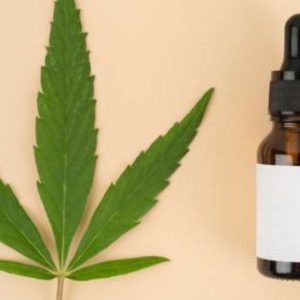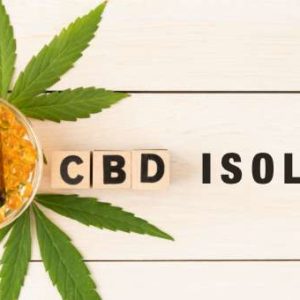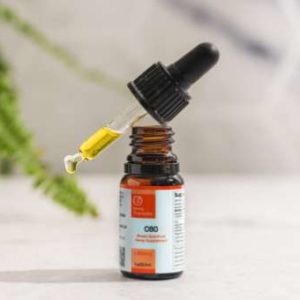Ethanol vs CO2 Extraction Methods
- admin
- General
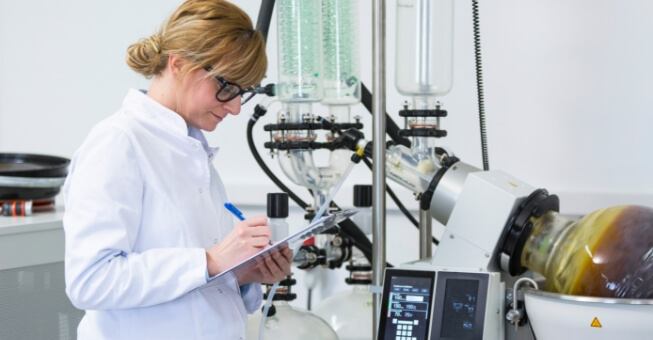
CO2 extraction and ethanol extraction are two supercritical processes for manufacturing hemp oil. Hemp oil, also commonly referred to as cannabis oil or CBD oil, is proving to be highly useful for the treatment of a range of medical conditions, improving the lives of countless people across the globe. It can help to alleviate pain, soothe discomfort, reduce anxiety, and much more, and there are two main methods of hemp oil manufacture: supercritical CO2 extraction and ethanol extraction CBD. CO2 extraction vs Ethanol extraction will be addressed and discussed on this page.
When you’re shopping around for CBD oil or hemp oil, you might notice certain complex-sounding phrases and terms you may not be familiar with. CBD oil that has gone through the CO2 extraction process is one example, and you may also see some hemp oil products marked as having gone through the ethanol extraction process as well.
It’s not uncommon for people to see these terms and find themselves wondering what they really mean, and many people aren’t sure of the specifics behind these two different techniques and which one might be better for them than the other.
In the CBD world, there are people in favor and against both of these methods, and this guide will take a look at what they are, how they work, and what pros and cons each one has to help you get the full overview.
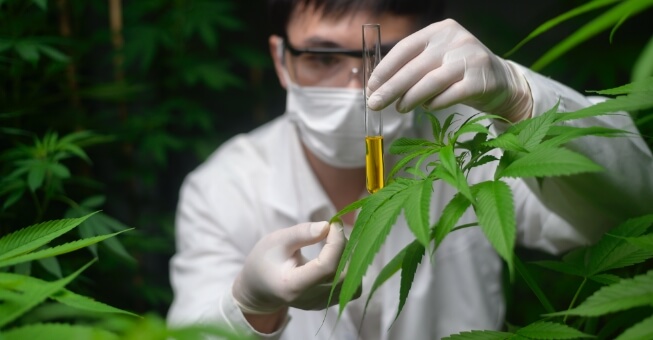
Ethanol Extraction vs CO2 Extraction: What Is Solvent Extraction?
When we want to separate an essential oil from its source (a plant), we usually make use of a solvent to ease the process along.
This solvent can be used to separate the key oil from the plant matter, and in the case of CBD Oil, the idea is to separate cannabidiol (CBD) and other cannabinoids from the hemp plants.
Different solvents can be used during solvent extraction, and two of the most common options available for hemp oil are ethanol and CO2.
What Is Ethanol Extraction?
Ethanol extraction is one of the most common options when producing CBD oil. Cannabis alcohol extraction is quite a simple process overall. It basically involves heating the hemp plant and then soaking it in a solution of ethanol for a set amount of time.
Once that period of time has passed, the resulting solution is filtered, separating the liquid from the plant, and then the ethanol itself is allowed to evaporate, leaving behind the CBD and other key ingredients.
The process can be repeated a few times to get the very best results and most concentrated solutions, and various pieces of specialized equipment can be used for this technique.
Since ethanol is such an effective natural solvent, many experts argue that it’s one of the best options to use in terms of preserving the purity and quality of the CBD from the hemp plant.
The Pros and Cons of Ethanol Extraction
Ethanol extraction, like other CBD oil creation techniques, has its plus points and its drawbacks. On the positive side, it’s one of the most reliable techniques for extracting cannabinoids from hemp plants, which is partly why it’s so popular. It’s also regarded as very safe, since ethanol is a completely clean, natural solvent without any toxicity or other issues to worry about.
This technique is also very effective, as ethanol is able to bond with lots of different compounds from the hemp plant and extract all of the different cannabinoids and other key ingredients for an excellent full spectrum solution.
On the downside, we can argue that this method may result in quite a green and bitter-tasting final product since ethanol has a habit of extracting chlorophyll from the plant cells. It’s not dangerous and is in fact quite healthy to consume, but can give the oil a rather unpleasant taste.
In addition, the process of ethanol extraction often has to be repeated several times to get rid of all the ethanol, which can lead to lower levels of purity and potency in the hemp oil itself.
What Is CO2 Extraction?
The other common option for CBD oil is oil that has gone through the CO2 extraction process, which is also commonly referred to as supercritical hemp oil, due to the way in which it is made. For this process, CO2, also known as carbon dioxide, is used as the solvent, but it needs to be placed in the right conditions first.
Since CO2 is usually a gas at room temperature, it has to be cooled and placed under very high pressure to become closer to a liquid state, also known as a ‘supercritical’ state. This basically means that the CO2 is able to pass through the plant like a gas, but retains many of the properties of a liquid in order to extract cannabinoids and more.
Specialist equipment is required for CO2 extraction, including a supercritical CO2 extractor, so it’s not really a process that can be carried out at home.
Once the CO2 has been cooled and pressurized, it enters a chamber with the hemp plant material. The terpenes and compounds dissolve into the CO2 , which passes through a separator, leaving CBD oil behind.
Pros & Cons Of Hemp Oil That’s Gone Through The CO2 Extraction Process
As with ethanol extraction, there are pros and cons to the CO2 method too. On the plus side, just like with ethanol extraction, this method has been proven to be highly reliable and effective.
It’s one of the safest ways to extract CBD oil too, as CO2 products don’t usually pose any kind of serious health risk to users. Not only that, but CO2 won’t usually extract chlorophyll like ethanol does, so it won’t create green, thick CBD oil with any unpleasant tastes or aromas.
However, there are some downsides to this method. If it isn’t carried out properly, health risks can arise, as the plants need to be completely dry, so it’s important to look for trusted, verified brands, such as Hemp Therapies.
Ethanol vs CO2 Extraction
When it comes to ethanol vs CO2 extraction CBD, which method is best? Well, both of them have their ups and downs.
CO2 hemp oil can definitely be recommended to many people, as it can be classed as purer and better-tasting than oil that has gone through the ethanol extraction process. It’s also a very safe and dependable method.
Ethanol extracted oil is also great to use in many situations and is often packed full of nutrients and useful chemical compounds, but can have some taste and aroma issues.
Conclusion – CO2 Extraction vs Ethanol Extraction
These two methods are the most common ways in which CBD oil is extracted, and both of them have their benefits. Understanding the difference between the two can help you choose the best CBD oil to meet your needs, like high-quality hemp oil from Hemp Therapies.
FAQs About CO2 & Ethanol Extraction
What is Hemp CO2 Extract?
Hemp CO2 extract is a form of hemp oil made through the use of CO2 as a solvent. The CO2 is placed under high pressure and low temperature to allow it to extract compounds from the hemp plant.
What is Supercritical CO2 Extraction?
This method involves the preparation of hemp CO2 oil using carbon dioxide that has been specially cooled and pressurized. The CO2 passes over the plant and extracts the chemical compounds.
How Much CO2 Does Hemp Absorb?
A single hectare of industrial hemp can absorb around 15 tons of CO2. This plant is very adept at absorbing carbon dioxide.
What Brands of CBD Oil Use CO2 Extraction?
Various leading CBD oil brands make use of CO2 extraction. Hemp Therapies, for example, is one trusted, verified brand that uses carbon dioxide in the preparation of its hemp oils.





